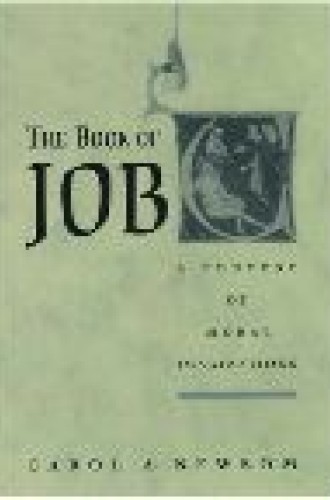The book of Job
On Job: God-Talk and the Suffering of the Innocent, by Gustavo Gutiérrez. Gutiérrez traces the theme of social justice in the book of Job, arguing that Job's suffering leads him to an increasing awareness of injustices afflicted on the poor. Gutiérrez also powerfully underscores the importance of contemplative appreciation for the sheer "gratuitousness" of life, to which he sees God pointing in the whirlwind speeches. Even if Gutiérrez is wrong about Job initially sharing the "retribution theology" of his friends, this book is a spiritual classic.
At the Scent of Water: The Ground of Hope in the Book of Job, by J. Gerald Janzen. A mature scholar reads the book as part of a larger interaction in the Bible between understanding God as a king figure who is associated with blessings of land and offspring (in the Abraham stories and elsewhere) and understanding God as a king who enforces political and social justice (in the Moses stories and elsewhere). Job's friends use the royal metaphor to trace Job's suffering to a presumed guilt, while Job and God, according to Janzen, appeal to a clan theology that does not guarantee freedom from unjust suffering but does refute the friends' accusations and persuade Job that life is worth living.
Answer to Job, by Carl G. Jung. At the end of his career, in one of his most controversial books, Jung asks how varied God images reflect and guide the soul's quest for wholeness. Whether or not you agree with Jung's archetypal interpretation, his unsparing questions about the characterization of God in Job and other biblical books (especially Revelation) need to be faced, along with his proposal that violence is most likely to erupt precisely when we insist that we are—or our God is—simply good rather than complexly whole.
The Book of Job, by Stephen Mitchell. This book offers a dynamic poetic rendering (with technical notes at the end) of most of the book of Job (chapters 28 and 32–37 are omitted) by a translator who specializes in spiritual classics. Be sure to get an edition that includes Mitchell's perceptive introductory essay on Job's tone and literary dynamics. Mitchell translates Job 42:6, "Therefore I will be quiet, comforted that I am dust."
The Book of Job: A Contest of Moral Imaginations, by Carol A. Newsom. Newsom ponders the presence of multiple genres in Job, suggesting that they create a dialogue between different "moral imaginations." She offers the important suggestion that the contest between these component viewpoints remains unresolved, although our own understanding is enriched by their encounter.
J. B.: A Play in Verse, by Archibald MacLeish. This play, of roughly the same vintage as Jung's Answer to Job, retells Job's story in a 20th-century context. The dialogue between the circus hands who play God and Satan raises trenchant questions about theology and faith, while the conclusion sounds a subdued but powerful note of hope in human love.











